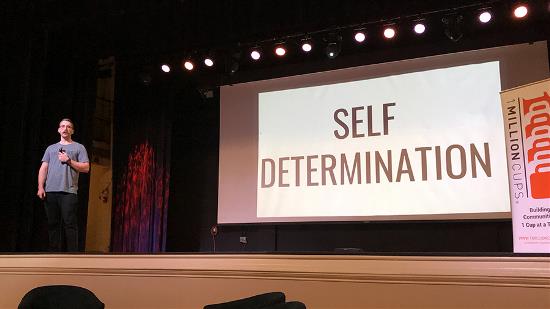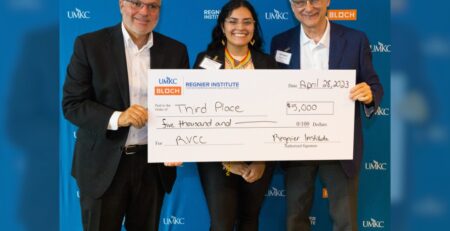Powering Through Failure: How to Push Your Business or Nonprofit Past ‘No’
By Kyle J. Smith, founder of Determination, Incorporated
 In the first half of 2018, I left my full-time job to start a business support group for formerly incarcerated people called Be the Boss, which is part of Determination Incorporated, a KC-based nonprofit that creates a pathway of opportunity for formerly incarcerated people through entrepreneurship.
In the first half of 2018, I left my full-time job to start a business support group for formerly incarcerated people called Be the Boss, which is part of Determination Incorporated, a KC-based nonprofit that creates a pathway of opportunity for formerly incarcerated people through entrepreneurship.
In my time in Kansas City’s entrepreneur community, I’ve learned you’ll face your share of setbacks. Being told “no” or not being awarded funding can feel like a real punch to the gut. It’s okay to let it sting for a bit. (It is a bummer.) And after that initial hurt wears away, keep pushing forward because it’s what you do next that really matters.
Even the most successful people have had their fair share of losses. At the end of the day, there are only two ways to learn anything: the hard way and the easy way.
I think it’s safe to say that not making it to the next round of a local business plan competition is a relatively easy way to learn something. As the founder of a new nonprofit, getting told “no” is something I’m constantly working around, through and with.
Each time the universe gives me a brick wall, I take a moment to shake it off; then, I take a while (alone or with trusted a mentor) to run a little assessment that goes something like this …
[[CTA]]
Do I need to make any adjustments to my why-when-where-who-what-how thesis?
What is this thesis framework? It’s a little exercise to understand what your business looks like and where it’s headed. Here’s the gist:
● Why are you starting this business? What is your personal mission statement? What do you hope to achieve?
● When: Why is this the right moment in time to manifest your idea?
● Where: Why is this the right place to manifest your idea?
● Who: Whom do you hope to serve?
● What: What will you do to achieve your “why” by serving your “who”? (aka what do you sell?)
● How: How will you serve your “who” to give you an edge over your competition?
My guess is for most people, losing a business plan competition is a great opportunity to investigate your “what.” With many entrepreneurs, our “why” is rock solid, and our “how” comes naturally. But our “what” can be a little off or may not (yet) compel investors.
Here’s one question you can use to investigate your “what”:

How can I better explain the results I’m aiming for, instead of what I want to do?
At the end of the day, investors pay for results. They don’t pay for activities; they pay for outcomes. A restaurant doesn’t just make the most delicious sandwich ever; it sells hundreds of sandwiches a day. A maintenance worker doesn’t just do the best work on the block; she serves as many clients per week in the most efficient way possible. And an author doesn’t write the most beautiful story imaginable; he sells a ton of books.
I am acutely aware it’s difficult to promise results when you’re starting something from scratch. (Try starting a service-based nonprofit.) But we can at least know what type of results we’re aiming for, then conduct little experiments to validate our ideas. Which leads us to …
Do I need to rightsize my idea/plan?
So you just lost a business plan competition: Did the universe just give you a signal that your lofty dream is too big? Or do you need to keep trying?
Only time (and hard work) will tell. But do take this moment to consider if what you’re saying you want to build is appropriate and feasible, considering the circumstances.
Many early-stage entrepreneurs might need to look long and hard at the mirror and realize what they thought was a viable small business (something they could create and sell later), may actually be better suited in the context of self employment (consultant-based) or a microenterprise (a hobby that generates revenue).
One model isn’t better or worse than another. But it is important to understand the difference between all of these goals so we can answer the question …
What are my next three steps, and what do I need to learn?
Entrepreneurship is not just about being your own boss. It’s a way to learn and to navigate the world. Entrepreneurs learn by doing and rely heavily on the network they build.
Take advantage of all the free resources Kansas City has to offer to start and grow your business. And keep showing up at places where you sense good energy and potential and get to know folks who you can learn from and have fun with.
And most importantly, keep going. There’s no one way to figure all this out.
Determination Incorporated is a new nonprofit that’s creating a pathway to opportunity for formerly incarcerated people through entrepreneurship. Learn more about the organization and its programs, like Be the Boss, at this link.





Leave a Reply